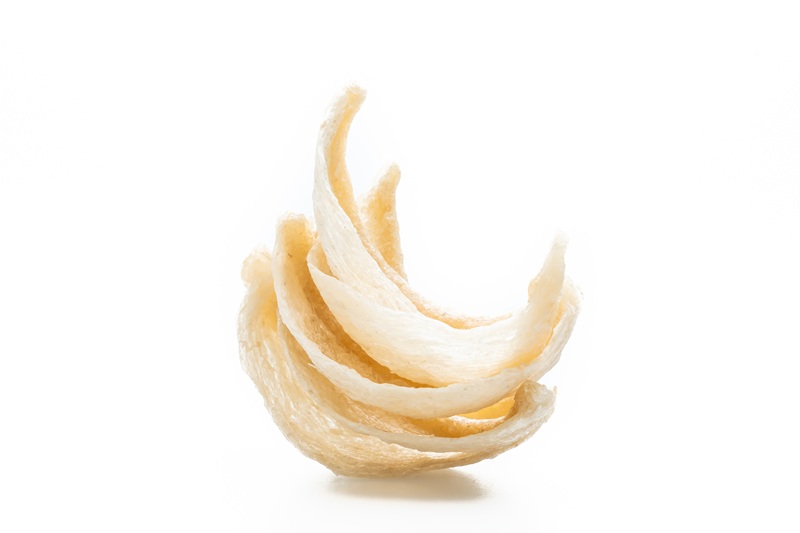
If you’re searching for unique ways to support your overall well-being, you might want to explore edible bird’s nests. Known for their long-standing reputation in traditional wellness practices, these nests offer more than just a symbol of luxury. From rare nutrients to benefits for your body’s most essential systems, they carry an intriguing promise for modern health seekers. But what exactly makes them so distinctive in today’s wellness world?
Origin and Composition of Edible Bird's Nests
Edible bird's nests are primarily constructed by the edible-nest swiftlet species. These nests are distinctive due to their composition, as they're made entirely from the bird's solidified saliva rather than traditional nest materials like twigs or leaves. Swiftlets build their nests on cave walls or in specially designed structures known as birdhouses.
These nests are noted for their nutritional value, being rich in essential proteins, glycoproteins, and minerals such as calcium.
Sialic acid, a key bioactive compound found in the nests, is believed to play a significant role in their reported health benefits. In Traditional Chinese Medicine (TCM), edible bird's nests are considered a valuable source of nourishment, providing a carefully balanced array of nutrients and minerals.
Whether sourced from caves or birdhouses, these nests offer a unique dietary option with specific nutritional advantages.
Historical Significance in Traditional Practices
For over a millennium, bird's nests have been valued in various cultures for their role in traditional wellness practices.
In the context of traditional Chinese medicine (TCM), edible bird's nests are regarded as more than just a food item; they're considered a health tonic. Historical records indicate that ancient Chinese emperors and elites utilized these nests for their perceived health benefits, which include anti-aging, immunomodulatory, and antioxidant properties.
These benefits were believed to contribute to vitality, longevity, and respiratory health. The consumption of bird's nests was also a symbol of wealth and status due to their rarity and high cost.
Today, edible bird's nests continue to be included in wellness practices, valued for their nutritional content and the cultural significance attributed to their restorative properties.
Nutritional Components and Bioactive Compounds
Bird's nests are notable for their nutritional composition, offering a range of health benefits. They're particularly high in protein, containing essential amino acids necessary for tissue repair and growth. The glycoproteins present in bird's nests are readily absorbed by the body, which can support immune function and contribute to maintaining physiological balance.
Additionally, bird's nests are a source of minerals such as calcium and magnesium, which are important for maintaining bone health. They also contain specific bioactive compounds, including sialic acid and epidermal growth factor (EGF), which have been associated with skin health and potential anti-aging effects. Moreover, antioxidants found in bird's nests may help protect cells from oxidative stress, thereby supporting overall well-being and resilience.
If you're interested in learning more about the full scope of bird nest benefits, there are comprehensive resources available that explore their nutritional and health-promoting properties in greater detail.
Health Benefits for Respiratory and Digestive Wellness
Edible Bird’s Nests are noted for their distinct nutritional composition, which offers specific benefits for both respiratory and digestive health.
The glycoproteins and antioxidants present in these nests can contribute to improved respiratory health by providing moisture to the lungs and potentially reducing inflammation associated with chronic coughs and other respiratory conditions. This anti-inflammatory property may play a role in enhancing overall lung function.
In terms of digestive health, the amino acids and prebiotic components in Edible Bird’s Nests may aid in promoting digestive wellness by supporting the growth of beneficial gut bacteria and enhancing nutrient absorption.
Incorporating Edible Bird’s Nests into one's diet may therefore offer support for both respiratory and digestive systems.
Contributions to Skin, Bone, and Reproductive Health
Edible bird’s nests are known for their nutritional composition, which may contribute to skin, bone, and reproductive health.
The glycoproteins and amino acids in these nests can support collagen production, potentially improving skin elasticity and maintaining a youthful appearance. Additionally, the calcium and other minerals present may aid in maintaining bone health, which becomes increasingly important with age.
The presence of Epidermal Growth Factor (EGF) in edible bird’s nests might facilitate tissue growth and repair, thereby supporting skin resilience and recovery.
Furthermore, regular consumption may enhance nutrient absorption and blood circulation, which could have positive implications for reproductive health.
These attributes suggest that incorporating edible bird’s nests into one's diet may offer health benefits, although more research is needed to fully understand their effects.
Choosing and Consuming High-Quality Bird's Nests
When selecting edible bird's nests, it's important to prioritize quality and safety to ensure that you gain their full nutritional benefits.
Opt for high-quality, authentic nests from reputable vendors who adhere to strict food safety standards and maintain transparency in their sourcing and production processes. Authentic nests not only offer better taste but also maximize potential therapeutic benefits.
House nests are generally considered safer and more accessible, while cave nests might pose risks due to possible contamination with heavy metals. It's advisable to verify the origin and certification of the product.
Before incorporating edible bird's nests into your diet, consult with healthcare providers, particularly if you have allergies or existing health conditions, to ensure it aligns with your nutritional needs and health status.
Conclusion
When you incorporate edible bird's nests into your wellness routine, you’re embracing centuries of tradition and proven nutrition. Their rich proteins, minerals, and antioxidants don’t just support your immune, respiratory, and digestive health—they also promote radiant skin and strong bones. By choosing high-quality nests, you guarantee you’re reaping the maximum benefits. Don’t overlook this treasured superfood’s power to enhance your holistic well-being and energy in today’s modern health landscape. Give your health the luxury it deserves.
|
